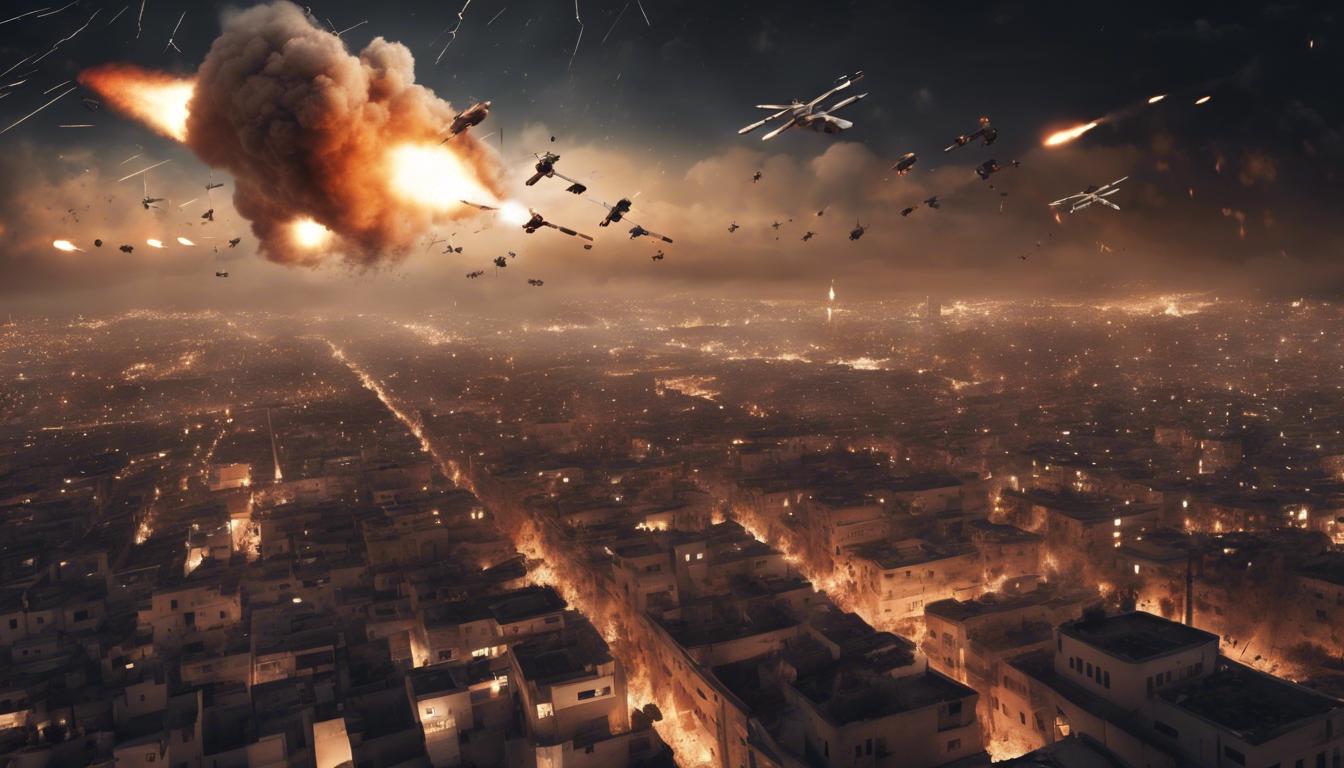Tensions spike in the Middle East as Iran launches a significant military attack on Israel, with the UK’s Royal Air Force playing a crucial role in intercepting the assault. Global leaders urge restraint and seek diplomatic solutions.
On April 14, 2024, tensions in the Middle East escalated dramatically following a significant military assault by Iran on Israel. This attack involved over 300 Iranian drones and ballistic missiles targeting Israeli territory. The Israeli Defense Forces, supported by allies including the RAF from the UK, intercepted over 99% of these projectiles, mitigating potential extensive damage and loss of life.
The Iranian offensive was reportedly a response to a recent airstrike on an Iranian consular building in Damascus, Syria, attributed to Israel. This incident has significantly heightened regional tensions and marks the first direct military engagement between Iran and Israel.
In the UK, Prime Minister Rishi Sunak confirmed the involvement of RAF jets in intercepting the attack, highlighting the critical role they played in neutralizing the threat. These actions were part of a broader international response that included support from the United States and France.
The interception efforts were successful, with Israeli officials reporting that the air defense systems effectively managed the threat outside Israel’s borders. Despite this, the onslaught has raised fears of a potential further escalation into broader regional conflict.
Global leaders, including US President Joe Biden and UN Secretary-General Antonio Guterres, have called for restraint and a coordinated diplomatic effort to address the situation. Prime Minister Sunak has also chaired a Cobra meeting and is in discussions with other G7 leaders to formulate a response to Iran’s aggressive actions.
As the situation develops, the international community remains vigilant, with efforts underway to de-escalate tensions and prevent any further military engagements in the region.













